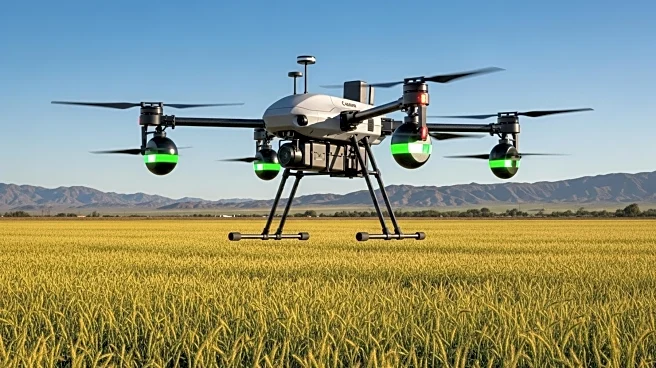What is the story about?
What's Happening?
Yuma, Arizona, known as the 'Winter Lettuce Capital of the World,' is a key agricultural hub in the U.S., producing over 90% of the nation's leafy vegetables during winter. The region's favorable climate supports year-round farming, making agriculture the backbone of Yuma's economy. In 2025, the agriculture job market in Yuma is expected to offer diverse roles, from field labor to advanced management and technology-based positions. The integration of technology, such as satellite monitoring and precision agriculture tools, is reshaping the workforce, creating high-paying roles and driving demand for technical skills.
Why It's Important?
The agriculture sector in Yuma is vital for the U.S. food system, providing significant employment opportunities and economic benefits. The adoption of technology in farming practices is enhancing productivity and efficiency, leading to higher wages and more stable employment options. As the industry evolves, there is a growing demand for skilled workers in technology-driven roles, such as AgriTech technicians and irrigation specialists. This shift not only supports economic growth but also addresses labor challenges, including fair labor conditions and worker protections, contributing to a more sustainable and equitable workforce.
What's Next?
As technology continues to transform agriculture jobs in Yuma, the focus will be on training and equipping workers with the necessary skills to adapt to new tools and practices. Local employers and government agencies are expected to implement reforms to improve job quality and living conditions for agricultural workers. The expansion of full-time, year-round roles will provide more stability for the workforce, while ongoing technological advancements will drive further innovation in farming practices. Stakeholders will need to collaborate to ensure the successful integration of technology and address workforce demands.
Beyond the Headlines
The technological transformation in Yuma's agriculture sector has broader implications for sustainability and environmental impact. The use of satellite data, blockchain traceability, and smart irrigation systems not only boosts productivity but also promotes sustainable practices and resource management. This evolution supports Yuma's long-term outlook as a leader in American food production, highlighting the importance of technology in shaping the future of agriculture. The focus on sustainability and digitalization reflects a shift towards more responsible and efficient farming practices, benefiting both the environment and the economy.

















